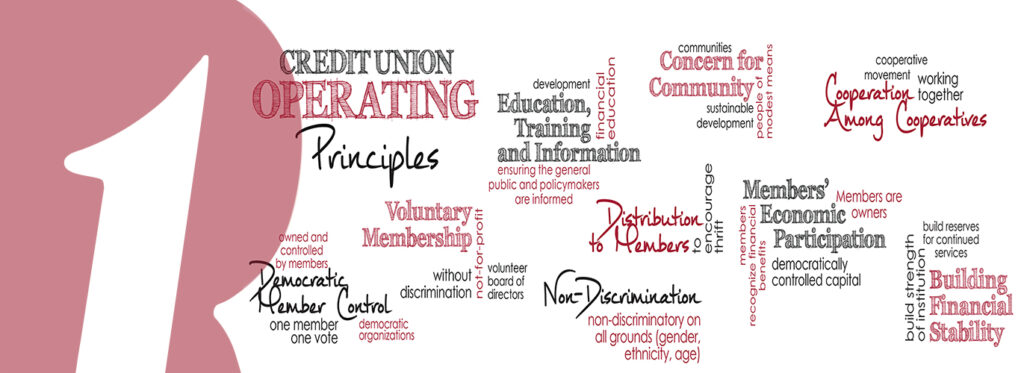Why Choose Resource One
Over 70,000 members have already discovered the credit union difference. Why not discover the difference for yourself why Resource One is a new choice in banking.
The Credit Union Difference
The Credit Union Movement is forever for the member – in what we offer today, in the changes we make to prepare for the future, and in the way we treat people everyday through every interaction.
Removing the Burden
Financial burdens are a reality in life, but a financial institution should not be one of them. At the heart of the Credit Union Movement is a desire to help, to guide and to actually listen. Our goal is to delight and surprise our members by providing realistic solutions, financial education and ways to make their lives easier.
Championing Humanity
Whether it’s the members we serve or the communities we support, Credit Unions put humanity first. Our members are people, not assets. We look for opportunities to help rather than risks to avoid. And above all else, we believe in doing what is right – not for profit, not for shareholders, but for the good of our members, our employees, and our community.
Advancing Achievement
Goals and dreams are personal. Credit Unions treat every member as an individual, and, regardless of their unique definition of success or their current circumstances, we help build and clear the path toward achievement. We empower, equip, and coach each member toward personal growth and accomplishment.
Inspiring Confidence
Trust is as powerful as it is delicate. The Credit Union Movement seeks to inspire confidence in its members by giving them a view of transparent operations and ownership in the organization. We do not expect our members to trust us; we strive to earn that trust with every interaction, through every service, every day.
Credit Union Operating Principles
These Credit Union Operating Principles are founded in the philosophy of cooperation and its central values of equality, equity, and mutual self-help. They express, around the world, the principles of human development and the brotherhood of man through people working together to achieve a better life for themselves and their community.
Voluntary Membership
Credit unions are voluntary, cooperative organizations, offering services to people willing to accept the responsibilities and benefits of membership, without gender, social, racial, political or religious discrimination.
Many cooperatives, such as credit unions, operate as not-for-profit institutions with volunteer board of directors. In the case of credit unions, members are drawn from defined fields of membership.
Democratic Member Control
Cooperatives are democratic organizations owned and controlled by their members, one member one vote, with equal opportunity for participation in setting policies and making decisions.
Non-Discrimination
Credit unions are non-discriminatory on all grounds, including but not limited to race, orientation, nationality, sex, religion and politics.
Concern for Community
While focusing on member needs, cooperatives work for the sustainable development of communities, including people of modest means, through policies developed and accepted by the members.
Education, Training, and Information
Cooperatives provide education and training for members, elected representatives, managers, and employees so they can contribute effectively to the development of the cooperative.
Credit unions place particular importance on educational opportunities for their volunteer directors, and financial education for their members and the public, especially the nation’s youth. Credit unions also recognize the importance of ensuring the general public and policy makers are informed about the nature, structure, and benefits of cooperatives.
Members’ Economic Participation
Members are the owners. As such they contribute to, and democratically control, the capital of the cooperative. This benefits members in proportion to the transactions with the cooperative rather than on the capital invested.
For credit unions, which typically offer better rates, fees and service than for-profit financial institutions, members recognize benefits in proportion to the extent of their financial transactions and general usage.
Cooperation Among Cooperatives
Cooperatives serve their members most effectively and strengthen the cooperative movement by working together through local, state, regional, national, and international structures.
Distribution to Members
To encourage thrift through savings and thus to provide loans and other services, a fair rate of interest is paid on savings and deposits, within the capability of the credit union.
The surplus arising out of the operations of the credit union after covering the cost of finance, operating costs, provisions for loan losses and ensuring appropriate capital reserve levels, belongs to and benefits all members with no member or group of members benefiting to the detriment of others. This surplus may be distributed among members in proportion to their transactions with the credit union, as dividends on shares or directed to improved or additional services required by the members.
Building Financial Stability
A prime concern of the credit union is to build the financial strength, including adequate reserves and internal controls that will ensure continued service to the membership.







